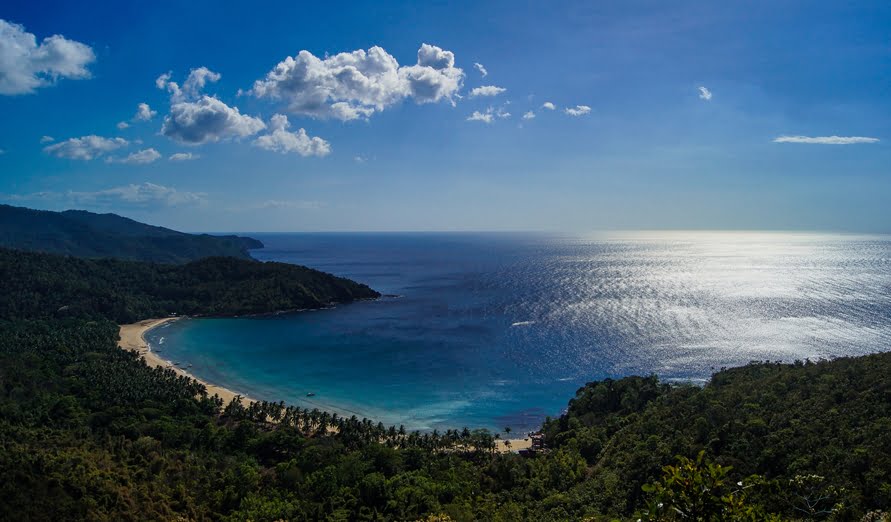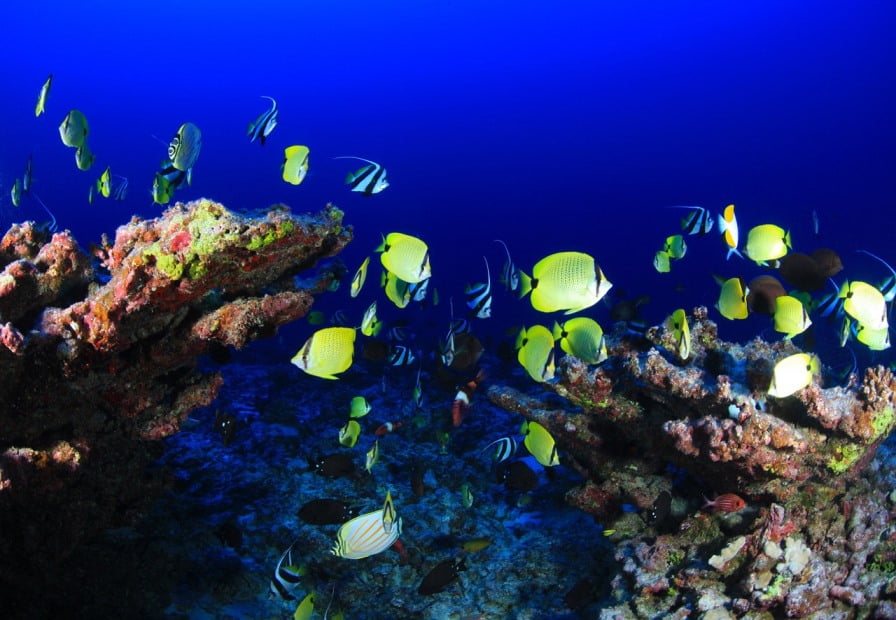The world’s major sources of iron were once dissolved in seawater, which leads researchers to believe our first oceans were acidic. A new Israeli study sheds light on how past ocean acid levels were controlled by CO2 in the atmosphere, an important process for understanding the effects of climate change. The study also gives us a clue as to the conditions under which life emerged in the early oceans.
The scientists suggest that, billions of years ago, the rust that formed in the seawater and sank into the ocean was green, meaning it may have been an iron-based mineral.
Published in the prestigious journal Science, the study by Dr. Itay Halevy of Israel’s Weizmann Institute and Dr. Aviv Bachan of Stanford University, suggests that the early oceans, right around the time that life originated, were somewhat acidic, and that they gradually became alkaline.
The two tried to understand how ocean acidity can change, for example, in response to rising carbon dioxide (CO2) levels, and thus studied the history of seawater acidity.
SEE ALSO: Rising CO2 Could Lead To Collapse Of World’s Coral Reefs, Say Hebrew University Scientists
Acidity and alkalinity are measured on the pH scale of 0-14. On this scale, 7 is neutral, higher is alkaline, lower is acidic. At around 8.2, today’s oceans are mildly alkaline, and it’s been shown that rising CO2 levels are increasing the oceans’ acidity (decreasing pH).
Halevy explains that billions of years ago “the early sun was dimmer, even though we don’t have evidence for a much colder climate. We think that this is because the early atmosphere had more of the greenhouse gas CO2 than at present, and that as the sun got brighter, CO2 levels decreased.”
SEE ALSO: Something Fishy: Organisms From Suez Canal Put Mediterranean Marine Life At Risk
Sign up for our free weekly newsletter
SubscribeCO2 and water produce carbonic acid, so it stands to reason that the early oceans would have been more acidic. But higher early CO2 levels would also have resulted in acidic rainwater and this, in turn, could have led to higher rates of chemical weathering of Earth’s rocky crust, washing down ions that would partly neutralize the acidity of CO2.
About 3 billion years ago, the pH of ocean water was somewhere between 6 and 7.5 – between that of milk and human blood, which “gives us some clues as to the conditions under which life emerged in the early oceans,” Halevy said in a statement.
“Marine organisms and environments may suffer”
According to the researchers, “we had an early ocean more acidic than today in which primitive life thrived and chemical cycles were balanced; but if we want to apply this insight to today, we have to remember that this balance of acids and bases was maintained over geological timescales – millions of years.”
Halevy warns that “today’s acidification from CO2 is much more rapid… Hundreds of thousands of years from now, the oceans will have found a new balance, but between now and then, marine organisms and environments may suffer.”
Photos: Elise Iovenko
Related posts

Resilient And Nutritious New Plant-Based Milk Aims To Make A Splash

Chocolate From Cultivated Cocoa Comes Without Environmental Toll

Plastic Fantastic: Startup Takes PVC Back To Its Crude Oil Roots






Facebook comments